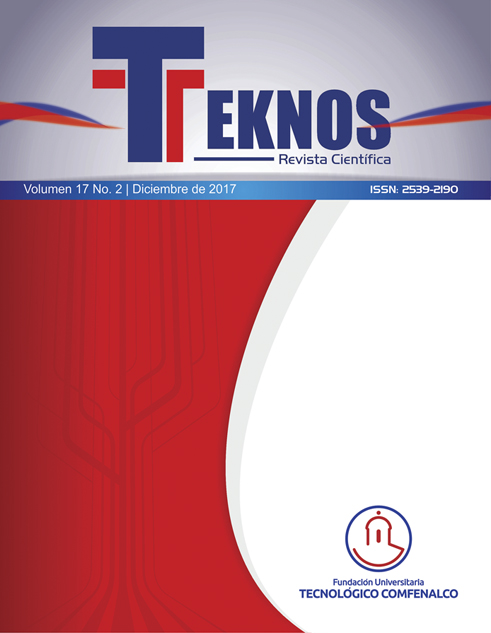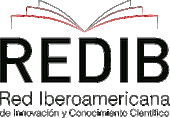ICT - mediated strategy for the teaching of technology and computing science
DOI:
https://doi.org/10.25044/25392190.905Keywords:
education, computing science, methodology, technology, ICT.Abstract
The Ministry of National Education takes into account the number of promotions within the educational institution for the measurement of institutional efficiency. The current indicators of the Padre Roberto Arroyave Vélez Educational Institution are negative because of the high percentage of academic failure in the sixth grades, in areas such as computers. The shift from the one teacher method to the multi teachers method affects considerably those indicators. This paper presents the results of a study carried out at the Institution on the incidences of this method, in the areas of technology and information technology. For which a pilot test of an educational strategy based on the implementation of ICTs was carried out, for the development of the thematic content of a period, in order to compare the approval and disapproval rates with the two previous years. The evaluation of this strategy was carried out through direct comparison, using the WEKA data mining program, which allowed us to analyze, from a simulation of possible scenarios, the comparison of the results with the indexes of the previous years. The obtained result presented group improvement of the student promotion indexes, in the areas of technology and information technology.Downloads
References
Asamblea Nacional Constituyente. (1991). Constitución Politica de Colombia. Obtenido de Constitución Colombia: http://www.constitucioncolombia.com/
Bustamante, N. (27 de 04 de 2014). Educación en Colombia se basa en métodos Anticuados. El Tiempo, págs. En línea: http://www.eltiempo.com/archivo/documento/CMS-13888215.
Celman, S. (2008). ¿Es posible mejorar la evaluación y transformarla en herramienta del conocimiento? Obtenido de CAMILLONI: http://www.epetrg.edu.ar/Bibliografia%20PIE/CELMAN%20Susana,%20Es%20posible%20mejorar%20la%20evaluacion%20y%20transformarla%20en%20herramienta%20de%20conocimiento.pdf
Cifuentes, G. M. (31 de 08 de 2009). la evaluación del aprendizaje: las TIC en la educación superior. Obtenido de Universidad de los Andes: http://pensandoeducacion.uniandes.edu.co/ponencias/Cifuentes%26Montoya-TIC_Evaluacion_aprendizaje.pdf
Comisión Europea. (2013). El uso de las TIC en la educación de las competencias clave. Obtenido de Educalab: http://formacion.educalab.es/eva2013/pluginfile.php/3515/mod_resource/content/2/EL%20USO%20DE%20LAS%20TIC%20EN%20LA%20EVALUACI%C3%93N%20DE%20LAS%20COMPETENCIAS%20CLAVE.pdf
Diaz Barriga, A. (2009). Reseña: Pensar en la Didáctica. Buenos Aires: Colección Agenda Educativa.
Diaz Barriga, A. (2013). TIC en el trabajo del aula. Impacto en la planeación didáctica. Revista iberoamericana de educación superior.
Entrepeneur. (02 de 07 de 2009). www.entrepeneur.com. Obtenido de www.entrepeneur.com: https://www.entrepreneur.com/article/262488
Fundación Montessori. (s.f.). El método Montessori. Obtenido de Fundación Argentina María Montessori: http://www.fundacionmontessori.org/Metodo-Montessori.htm
Gaitán, V. (2013). Gamificación: el aprendizaje divertido. Obtenido de Educativa.com: http://www.educativa.com/articulos/gamificacion-elaprendizaje-divertido/
Gale, O., Gómez, Y., & Pontón, E. (27 de 04 de 2012). Historia de la Pedagogia. Obtenido de Slideshare: http://es.slideshare.net/Yamilegomez1981/diapositivashistoria-de-la-pedagogia
Hernández, M. A. (26 de septiembre de 2014). Se dispara consumo de telecomunicaciones en Colombia. El Tiempo, págs. http://www.eltiempo.com/tecnosfera/novedadestecnologia/asi-crecen-las-tic-en-colombia/14599938.
Martínez - Solanova, E. (s.f.). Los métodos de enseñanza. Obtenido de Educación y didáctica: http://www.uhu.es /cine.educacion/didactica/0031clasificacionmetodos.htm
MEN. (04 de 2008). MEN. Obtenido de MINISTERIO DE EDUCACION NACIONAL: http://www.mineducacion.gov.co/1621/articles-160915_archivo_pdf.pdf
Orozco Figueroa, M. (2011). Ministerio de Educación Nacional. Obtenido de Evaluación Educativa: http://www.monografias.com/trabajos82/la-valuacioneducativa/la-evaluacion-educativa.shtml
Padilha, M. (2009). Tipos de indicadores: una mirada reflexiva. En Los desafíos de las TIC para el cambio educativo. MADRID: Colección METAS EDUCATIVAS 2021.
Raso, A. (16 de 02 de 2015). Gamificar la educación. Obtenido de hipertextual.com: http://hipertextual.com/2015/02/gamificar-la-educacion
Ruiz Palomo, J. (2009). La evaluación del alumnado al incorporar las TIC. Congreso Internacional sobre uso y buenas prácticas con TIC: Libro en PDF.
Toranzos, L. (2000). Evaluación Educativa: una aproximación conceptual. Buenos Aires: Libro en PDF.
UNESCO. (22 de 10 de 2006). ENSEÑANZA DE LAS CIENCIAS Y LA TECNOLOGIA. Obtenido de ORGANIZACION DE LAS NACIONES UNIDAS PARA LA EDUCACIóN, LA CIENCIA Y LA CULTURA: http://www.unesco.org/bpi/pdf/memobpi59_scienceeduc_es.pdf
UNESCO. (2007). Competencias clave para el aprendizaje permanente un marco de referencia europeo. Obtenido de Unesco: http://www.mecd.gob.es/dctm/ministerio/educacion/mecu/movilidadeuropa/competenciasclave.pdf?documentId=0901e72b80685fb1
UNESCO. (2008). Estándares de competencia en TIC para docentes. Obtenido de Unesco: http://www.oei.es/tic/UNESCOEstandaresDocentes.pdf
UNESCO. (2012). TIC y evaluación educativa. Obtenido de Unesco: http://portal.unesco.org/geography/es/ev.php-URL_ID=16145&URL_DO=DO_TOPIC&URL_SECTION=201.html.
Universidad de Barcelona. (2008). La evaluación continuada como instrumento para el ajuste de la ayuda pedagogica y la enseñanza de competencias de autorregulación. Obtenido de Universidad de Barcelona: http://www.ub.edu/ice/sites/default/files//docs/qdu/8cuaderno.pdf
Webmining Consultores. (11 de 06 de 2011). KDD: Proceso de extracción del conocimiento. Obtenido de Webmining.cl: http://www.webmining.cl/2011/01/proceso-de-extraccionde-conocimiento/
Zapata, L. O. (2013). Prototipo de evaluación con TIC: un paso hacia el cambio curricular. Trilogia, 93-106. Obtenido de Corporación Universitaria Remington.
Downloads
Published
How to Cite
Issue
Section








